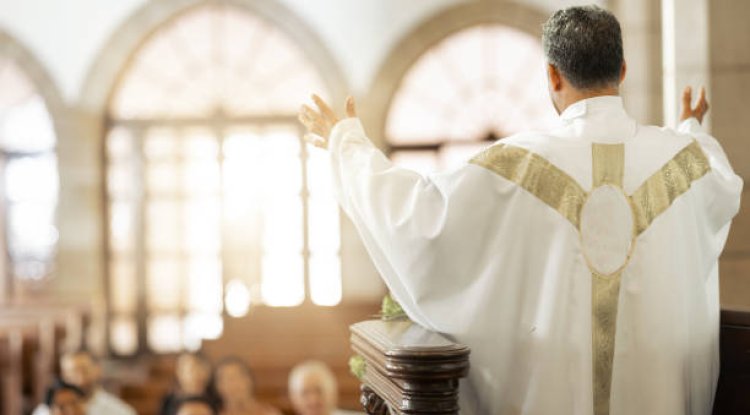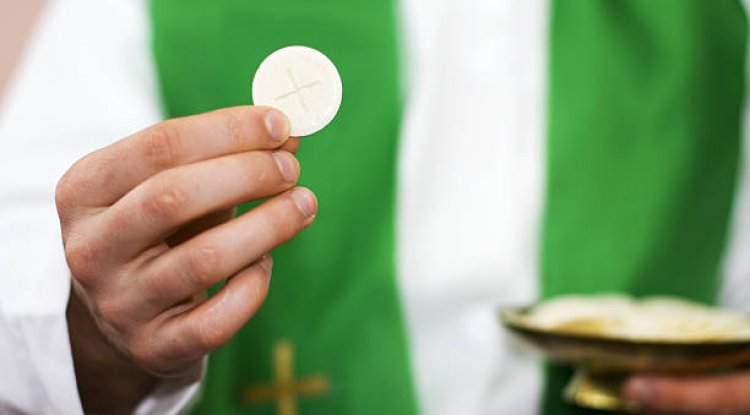EMBRACING HUMILITY
HOMILY FOR FOURTEENTH SUNDAY IN ORDINARY TIME, YEAR A. Readings: Zechariah 9:9-10; Psalm 144; Romans 8:9-13 and Matthew 11:25-30.

There is a spiritual virus called pride, it eats up every possibility of love in us and makes us full of ourselves. While this virus gradually ruins our lives, today’s liturgy presents to us an antivirus called humility to combat this deadly virus. The Church invites us in a special way to reflect on Christ’ humility and his option for the poor, which is necessary in our journey of faith.
The Prophet Zechariah is one of the twelve minor prophets of the Old Testament and in the first reading, he prophesies the coming of a humble king riding on a donkey, who will bring peace and rule over the nations, and his dominion will extend from sea to sea and to the ends of the earth. The reading raises the hope of those who are humble of heart and poor in spirit when it says, “Rejoice greatly, O daughter of Zion… Behold your king comes to you… humble and riding on a donkey” (Zec. 9:9). This prophecy of Zachariah speaks of the future King who will come to restore the kingdom, bringing justice and peace. In the face of despair and adversity, the reading brings a message of hope and reliance on God’s strength. It foretells the triumphant entry of Christ into Jerusalem (Mt 21:5), which seemed pretty humble, and it shows Christ was a different kind of King.
If He who is our Lord and God is humble enough to ride a donkey, why are we so proud of ourselves, and the material things we have or positions that we occupy? We are so good in condemning others that have elements of pride in them and when people compliment us that we are free from it, we feel as proud as the Lucifer himself. These are feelings that unconsciously come when we take these compliments to be justifiable. Some of us are so experienced, so knowledgeable, so versatile, and so free from self-confidence that we are the first to be caught in the net of self-satisfaction. This reading calls us to reflect on what we have and are; that in all, humility is a core mark in our lives as Christians, so we must pray to God to make us humble.
Christ in the gospel praises the Father for revealing the truth of his teachings to the humble and infants, rather than the wise and learned. He invites those who are burdened and weary to come to him and take up His yoke, promising that they will find rest for their souls. In His praises to the Father, He said, “I thank you, Father, Lord of heaven and earth, that you have hidden these things from the wise and understanding and revealed them to infants…” (Mt 11:25). This reflects Christ’ personal experience, the rejection He faced from those in high offices and the acceptance He got from the common people, including the sub-common tax collectors and sinners. Not being full of self, the little ones are open to receiving God. Having no religious assurance, they are open to receiving grace. Possessing no wisdom, they are open to learning from Christ. St. Paul amplifies this in his letter to the Corinthians 1:25 “The foolishness of God is wiser than men, and the weakness of God is stronger than men.” However, there were exceptions of those in high offices that accepted Christ, such as Nicodemus, a Pharisees who came to Jesus at night (Jn 3) and Joseph of Arimathea (Jn 27:57-60). Invariably, are we more inclined to depend solely on our strength and abilities, or do we seek God’s guidance and assistance in whatever we do? Do we have the tendency of “I too know?” If so, we cannot learn from Christ.
It is on this note He says to us “Come to me all who are labour and are heavy laden and I will give you rest. Take my yoke upon you and learn from me; for I am gentle and lowly of heart.” This invitation is not for the proud hearted, because they hardly realize that they are overburdened or need help. Rather, it is for the simple and humble of heart, who are fast to recognize their need for God’s intervention in their life. It is an invitation for those who are truly seeking the face of God and are ready to surrender to His will. Christ invites us to find rest and solace in Him. He knows we all feel burdened and in need of rest. We are not called to find rest in clubs/bars but in Christ. St. Augustine says, “Our hearts are restless until they rest in God.”
In the original context, these verses spoke specifically of those burdened by the Jewish law, given by God through Moses. Based on this, theologians like Scott Hahn will say, “Jesus is portrayed as a new and greater Moses. He is the Son who intimately knows the Father, revealing Himself as the yoke of a new Law and the embodiment of God’s Wisdom.” While the original context referred to the Jewish Law, it also extends to our weariness and burdens today. We are weary today, even though we don’t observe the Jewish Law. We are burdened by many things: we are burdened about jobs, marriage, money, health, children, security and old age. We are burdened about tough choices to make, criticism or oppositions. We are burdened about loneliness and a thousand other things. In the midst of these, Christ invites us, “Come to me, for my yoke is easy and my burden is light” (v.30). The combination of an easy yoke and a light burden make for a gentle journey.
While we strive for the virtue of humility, St. Paul in the second reading reminds us of the need to live in the spirit. To live in the Spirit is to live in Christ who is the epitome of humility, the one who is God, count no equality with God but accepted the nature of man. If we do not live by the Spirit, we automatically live by the flesh, which is contrary to the Spirit and produces pride. The flesh is attached to materialism while the Spirit raises our minds to things that are celestial.
Dear friends in Christ, today we are reminded of who we are, we are in the world but we are not of the world, we are not in the flesh, we are in the Spirit, for the Spirit of God dwells with and within us. Therefore, we must combat pride and embrace humility. Christ invites us to come to him, to cast our burden on him and to learn from him who is gentle and humble of heart. He is that beautiful/handsome friend we can lean on. Better still, we can see Him in the beautiful song of Johnny Drille, “How are you (my friend).” We can comfortably rest on His shoulder, which is big enough to carry the weight of the world (the cross). He does not complicate our life; he makes it clearer and simpler. May God help us to be gentle and humble of heart. Amen!
Happy Sunday!
Fr. Ken Dogbo, OSJ
What's Your Reaction?



















